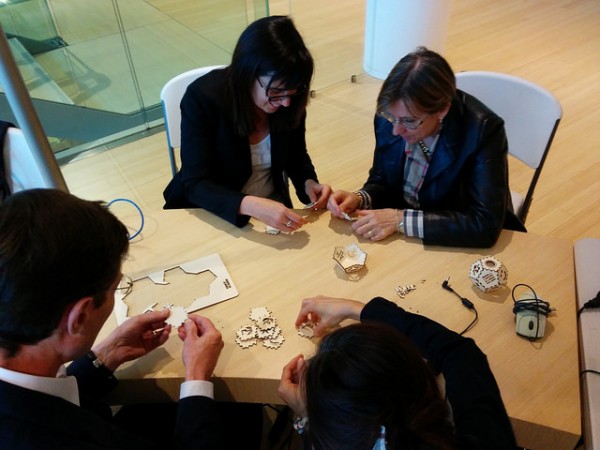Teamwork is an important part of any organisation. It leads to higher productivity, more effective communication and a better climate and culture. Many organisations are trying to foster team building, and one way they are doing it is through dedicated team-building activities.
However, a recent study by Vodafone UK and YouGov found that employees are getting tired of these sorts of exercises. Over half the people interviewed thought that doing more team building activities wouldn’t help them work better with their co-workers, and many said it was a waste of time and money.
This doesn’t mean that team-building activities are inherently ineffective. “Many genuine team-building activities can be valuable,” said Vodafone UK Director Peter Kelly, “but ultimately, to achieve better teamwork businesses need to get the basics right first.”
This is the key to effective team building– it’s a great way to build trust, ease conflict and increase communication within your organisation, but only when it is done correctly and when your organisation is ready for it.
This is the key to effective team building– it’s a great way to build trust, ease conflict and increase communication within your organisation, but only when it is done correctly and when your organisation is ready for it.
So how do you hold an effective team building activity? Here are five things to consider:
Assess your team’s needs
First, you need to be sure that your teams are ready. Holding a team building activity won’t do much good if there are severe problems with engagement in your organisation, so you should look into issues before putting effort into teambuilding.
Consider whether each team member will want to participate in the activity – you should never coerce or force team members to participate as this will generate resentment and make them disengaged, which will undermine the team building exercise.
Likewise, also think about the physical or psychological risks involved – if the activity you choose runs the risk of injuring, embarrassing or alienating members of your team you should probably consider a different one.
Determine your objectives
Next, you should decide what you want to achieve from your team building exercises, by determining what challenges your team needs to overcome. Does your team suffer from conflicts or divisions? Is there poor communication? Are certain members focusing on individual achievement over group performance? Questions like these will help you determine your objectives for your team building exercise.
Choose the right activity
Once you have decided on what you want to achieve, you can choose a team building activity that matches your objectives. You can find numerous ideas for team building activities online; the challenge is in choosing the right one.
Remember, if you are unsure you can ask your team for input. That way, you will more likely find an activity that everyone will engage with and benefit from.
Get creative
It is a good idea to consider engaging a professional team building facilitator to design and run the session for you. A facilitator will create activities that draw out the issues that the team want to address, and should also include a debriefing session to make the links between the issues and the team behaviours during the session.
If your budget doesn’t stretch to facilitated sessions, you can try something creative in the office. Remember team building activities don’t necessarily have to be expensive in order to be effective.
Continue the momentum
Finally, when planning your team building activity make sure it isn’t just a once-off event. Teambuilding isn’t something that you can achieve overnight, so plan to hold multiple team building sessions.
Rosalind Cardinal is The Leadership Alchemist and Principal Consultant of Shaping Change, an Australian consultancy, specialising in improving business outcomes by developing individuals, teams and organisations. .
She also runs the Shaping Change Inner Circle, an exclusive membership network for driven leaders around the world who are passionate about making a difference, building successful businesses and leveraging the talents and skills of their people.
Visit www.shapingchange.com.au to pick up your complimentary copy of Ros’ e-guide to Leading Change
Image credit: Flickr



